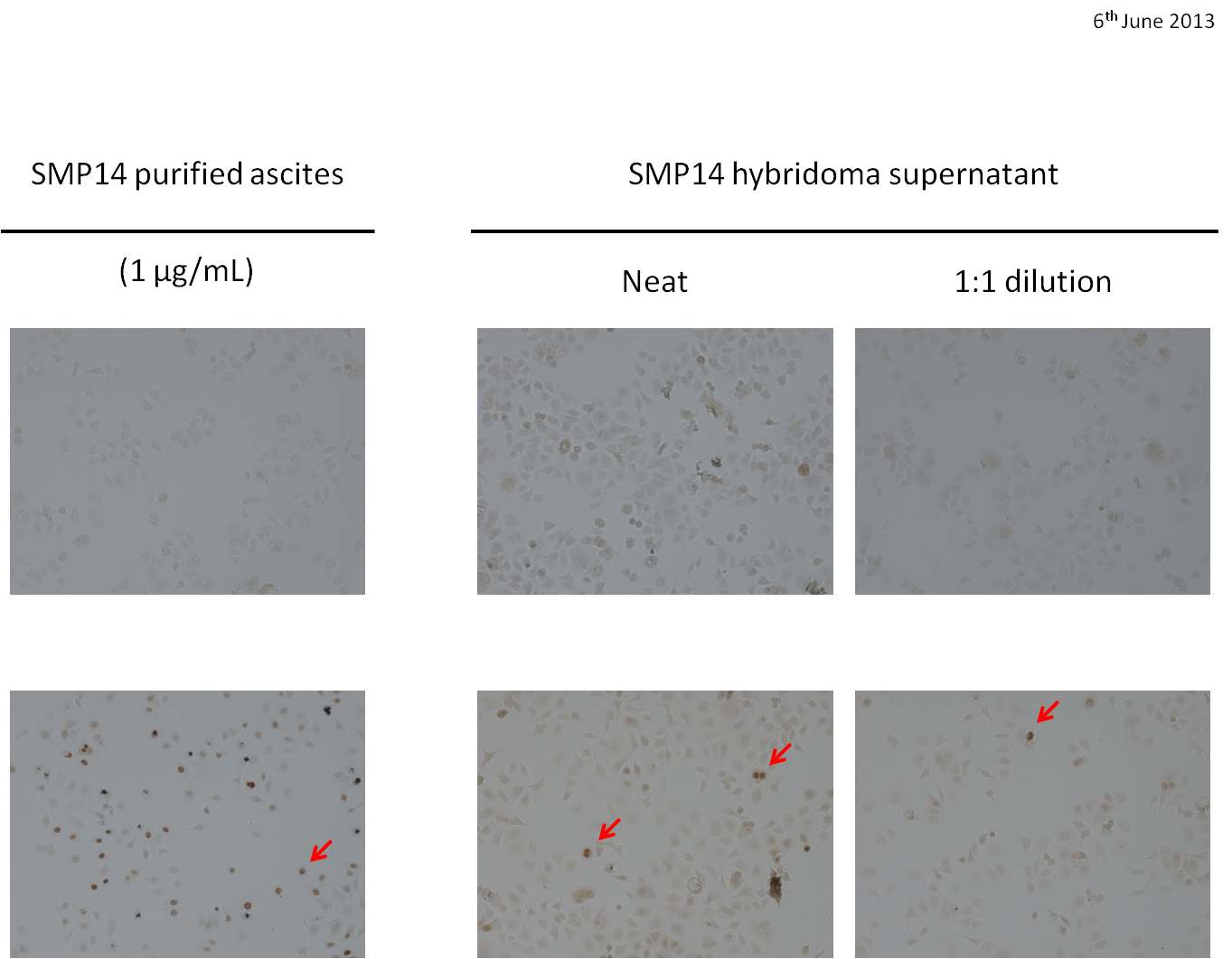Anti-Plx [AZ27] Product
[…] (Plx) is a mitotic regulator conserved from yeasts to humans. Many key cell cycle regulators such as p53, cdc25, cyclin B and the Anaphase Promoting Complex are directly targeted by Plx.
[…] (Plx) is a mitotic regulator conserved from yeasts to humans. Many key cell cycle regulators such as p53, cdc25, cyclin B and the Anaphase Promoting Complex are directly targeted by Plx.
[…] (Plx) is a mitotic regulator conserved from yeasts to humans. Many key cell cycle regulators such as p53, cdc25, cyclin B and the Anaphase Promoting Complex are directly targeted by Plx.

MDM2 is over-expressed in many tumours. Its principal function is the ubiquitination and degradation of p53 tumour suppressor protein.
p14ARF is associated with the regulation of p53 and MDM2 and is deleted or methylated in many human cancers.
[…] the immunosuppressive tumour microenvironment and tumour immune escape. These signalling pathways include STAT3, β-Catenin, PI3K/PTEN/AKT/mTOR, p53, NF-κB, RAS/RAF/MAPK, and KRAS/MYC. They can drive effective immunocyte exclusion and disfunction, as well […]

[…] paper used pBABE to demonstrate how oncogenic RAS triggers premature cellular senescence through p16INK4a/Rb and p53/p21pathways6. This discovery established senescence as a critical tumour-suppressive barrier, reshaping our understanding of cellular […]
[…] major therapeutic target. Additionally, we have antibodies targeting tumour suppressor genes, including a panel of p53 antibodies (DO-11, DO-12, DO-1, Pab 240 and Pab 246) to enable detection of p53 […]
[…] identified the epitope PSHLIR, which occurs twice within the central region of p63. The antibody recognizes TAp63 and deltaNp63. The antibody does not cross-react with p53 or any p73 isoform tested.
[…] suppressor role and differentiate from the TA (TAp63) isoforms of the same protein. Binding specificity: within MLYLENNAQTQFSE. No cross-reaction with p53 or p73 isoforms. Specificity verified by CRISPR-knockout and shRNA knockdown.

[…] in diameter in < 3 weeks. UM-UC-1 showed strong over expression of nuclear staining for p53 by immunochemical analysis. UM-UC-1 was more resistant to adenoviral gene transduction than several of […]

Please note we may take up to three days to respond to your enquiry.
CancerTools.org uses the contact information provided to respond to you about our research tools and service. For more information please review our privacy policy.